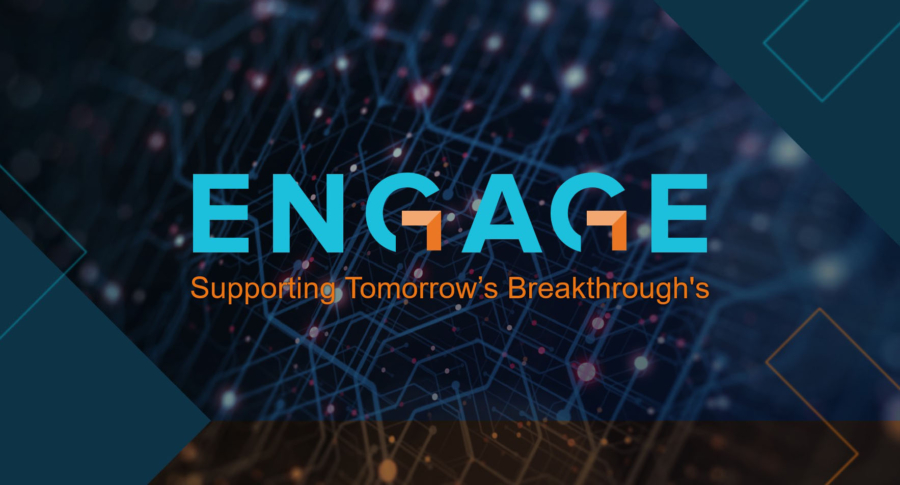
Building a Center of Excellence for External Data: Q&A with Cassandra Leary
In our latest Biometrics Services Spotlight blog, we gain insights and perspectives from Cassandra Leary, Manager of External Data at eClinical Solutions. With a 15-year data management career, and a track record of driving process improvements, Cassandra leads the Center of Excellence for External Data within the eClinical Solutions’ Biometrics Services team. The eClinical Solutions Industry Outlook 2023 recently reported that 64% of leaders surveyed were routinely using 6 or more external data sources within their trials. To address this growing challenge, the team invests in process improvements and elluminate® adoption to manage, reconcile and standardize this increasingly diverse external data. In our interview, Cassandra discusses the rapid pace of change in the field of external data, the initiatives that are top of mind for her group, and the critical importance of strong communication.
What is your role at eClinical Solutions?
As Manager of External Data within the Biometrics Services team, I’m responsible for leading the acquisition and management of external vendor data including local lab data. Our team works very closely with clients, vendors and internal stakeholders to ensure that we handle the growing volume and variety of external data efficiently and effectively. An important part of my role leading our Center of Excellence for External Data is developing our group’s capabilities to support the likely future-state as well as current activities and workload. Prior to joining eClinical Solutions I worked for a large CRO where my role evolved over time from external data processing and reconciliation to developing best practices and identifying improvements.
The trial landscape is changing rapidly and so too is the ecosystem of vendors, and breadth of external data. With most clinical data now collected outside of the Electronic Data Capture (EDC) system, it is critical for our clients that we stay ahead of the curve. In such a dynamic space, I enjoy that I am continually challenged to develop my skills and knowledge. Every day I learn something new!
How instrumental is your role for our Biometrics Services delivery?
The importance of external data management is becoming increasingly recognized, because of the pace of change and growth. Several years ago, when I first started working in this particular area, studies typically involved a handful of vendors. Now, it’s quite commonplace to see studies with 6 or more vendors, with some studies even incorporating over 10 external data sources. In this context, the advantages of having a focused group like our Center of Excellence for External Data that can specialize in examining, processing, and reconciling that data are clear.
What are the priorities of your group within the Biometrics Services team?
With respect to people, we are focused on developing the depth and breadth of expertise of our external data team and ensuring that they have the right skills to leverage the full potential of technology.
Process improvement is also integral to our activity, especially in terms of streamlining our processes for working with vendors, implementing external data tracking processes and KPIs to keep surface any issues early, and enabling standardization.
Finally, the team routinely uses elluminate to ease the burden of tasks such as aggregation, issue management, and vendor oversight.
Beyond these aspects, one of the critical success factors for external data handling is communication. We need to ensure that all key stakeholders throughout the process are on the same page through complete transparency and clearly laid out expectations from the get-go. Strong, clear communication helps to smooth the overall process. For example, by working proactively with all key stakeholders, including those who will be analysing the data, we can significantly accelerate the setup of the data transfer agreements.
What are some typical challenges you face?
The challenges typically derive from the variety of data sources, number and variability of vendors, and the need to standardize disparate data formats. For example, in any given study we could have a central lab vendor handling the ambient sampling processing along with the biomarker samples. The bioanalytical lab data might involve separate vendors for PK(Pharmacokinetic) and PD (Pharmacodynamic), and, depending on the trial type, we might see other data types such as ECG, spirometry, ECHO, biomarker data, wearables and eCOA (electronic Clinical Outcomes Assessment) data. Our team needs to liaise with these different third parties, and efficiently collect, aggregate and standardize the data so that it is ready for analysis. There might be significant disparity between vendor processes and data formats, therefore ensuring standardization requires effort. Where some vendors supply data in CDISC-driven formats, others may not have that capability, and we need to account for that in our processes.
Within our Center of Excellence for External Data we fine-tune our approach to work most efficiently with these external vendors, focusing on end-to-end standardization and maximizing our internal adoption of elluminate to help us do that.
How are you working to enhance standardization for external data?
CDISC standards are very well established in certain areas, such as in the laboratory field, so when you receive a Data Transfer Agreement (DTA) for a large central laboratory, the file structure is often based off CDISC formats. However, this standardization is not reflected across all vendors and data types. When collaborating with smaller, niche vendors in specialist areas we sometimes find that standardized formats are less well supported and used. To address this gap, we have been working on establishing CDISC-driven DTA formats for the most commonly seen data types.
Other initiatives include standard approaches for LOINC (Logical Observation Identifiers Names and Codes) leaning on the recent FDA Guidance. We have also developed standardized approaches within oncology to mitigate the commonly seen variability in provided information such as toxicity grades. Working across the vendor ecosystem to support data standardization and aggregation is a critical part of our role to secure the integrity of the statistical analysis.
How are you and your team continuing to innovate and keep abreast of the change?
Naturally, we work closely with our clients and partners to understand and address their evolving needs and enable them to succeed in this increasingly fast-paced clinical development landscape.
As part of the wider life sciences community, we regularly share perspectives with our peers at conferences and events to both inform our own best practices and help shape the future of the field.
The industry is at an early stage in its digital trials journey, and the trend towards decentralization and hybrid approaches is only going to continue. Fully harnessing the potential of technologies- such as artificial intelligence and machine learning- and continually refining processes, will be critical to keeping pace with that change.
Author

Liz Cole has over 25 years’ experience in commercial roles within the biopharmaceutical sector with a particular focus on clinical data transformation, innovative trials, and advanced analytics. At eClinical Solutions, Liz is responsible for Biometrics Services’ marketing strategy, planning, product messaging, and content.
By submitting, you agree to the processing of your personal data by eClinical Solutions as described in our Privacy Policy.







